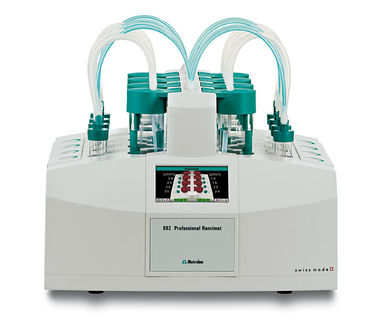To use all functions of this page, please activate cookies in your browser.
my.chemeurope.com
With an accout for my.chemeurope.com you can always see everything at a glance – and you can configure your own website and individual newsletter.
- My watch list
- My saved searches
- My saved topics
- My newsletter
First pass effectThe first-pass effect (or first-pass metabolism) is a phenomenon of drug metabolism whereby the concentration of a drug is greatly reduced before it reaches the systemic circulation. Product highlightAfter a drug is swallowed, it is absorbed by the digestive system and enters the hepatic portal system. It is carried through the portal vein into the liver before it reaches the rest of the body. The liver metabolizes many drugs, sometimes to such an extent that only a small amount of active drug emerges from the liver to the rest of the circulatory system. This first pass through the liver thus greatly reduces the bioavailability of the drug. Alternative routes of administration like intravenous, intramuscular, and sublingual avoid the first-pass effect because they allow drugs to be absorbed directly into the systemic circulation. The four primary systems that affect the first pass effect of a drug are the enzymes of the gastrointestinal lumen, gut wall enzymes, bacterial enzymes, and hepatic enzymes. See also
Categories: Pharmacokinetics | Medicinal chemistry |
| This article is licensed under the GNU Free Documentation License. It uses material from the Wikipedia article "First_pass_effect". A list of authors is available in Wikipedia. |







